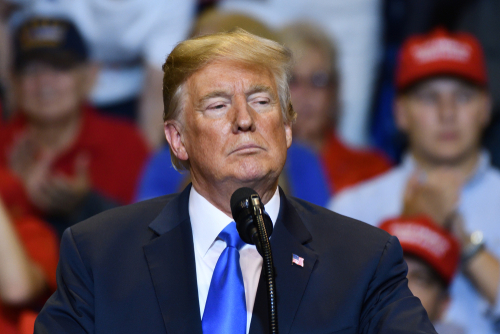
In a recent development that has sent ripples through the legal community, questions of ethics and impartiality have been raised in a high-profile defamation lawsuit. The case, which resulted in an $83.3 million verdict against former President Donald Trump, is now under scrutiny due to allegations of a past relationship between the presiding judge and the opposing counsel.
The controversy centers on claims that the judge, who oversaw the trial, had previously served as a mentor to the plaintiff’s attorney during their shared tenure at a prominent Manhattan law firm in the early 1990s. This alleged connection was not disclosed during the trial, raising concerns about potential bias and conflict of interest.
How can Judge Kaplan actually say "the fact that Mr. Trump sexually abused – 𝗶𝗻𝗱𝗲𝗲𝗱, 𝗿𝗮𝗽𝗲𝗱 – Ms. Carroll has been conclusively established”, [emphasis added], whereas the jury verdict form literally says the opposite?
Kaplan needs to be impeached YESTERDAY.
This is… pic.twitter.com/91IfwUQtHe
— Viva Frei (@thevivafrei) January 29, 2024
Trump’s legal team, led by firebrand attorney Alina Habba, has filed a letter in federal court highlighting these concerns. The letter points to the Code of Conduct for U.S. Judges, which mandates judges to disqualify themselves from cases where their impartiality might reasonably be questioned. The code specifically references situations where a judge has previously practiced law with an attorney involved in the matter at hand.
The defense argues that this undisclosed relationship could taint the verdict, suggesting that the judge’s impartiality could be compromised. They cite the judge’s treatment of Trump’s side as “overtly hostile” and “preferential” towards the plaintiff’s side, further supporting their call for a new trial on both liability and damages.
BREAKING: Jury has reached a verdict in the Trump 'defamation' trial, determine Trump will have to pay E. Jean Carroll $83.3 MILLION in damages.
Absolute insanity.
Trump will have to pay:
$65 million in punitive damages.
$11 million for "reputation repair program"
$7.3… pic.twitter.com/HTRk97yvYP— Collin Rugg (@CollinRugg) January 26, 2024
The former president’s legal team is already planning to appeal the verdict, which stemmed from his denials of accusations made by the plaintiff. The appeal will include this latest claim of a conflict of interest, potentially setting the stage for a retrial or an overturning of the verdict.
This situation has sparked a debate within the legal profession about the importance of transparency and the ethical obligations of judges and attorneys alike. It underscores the delicate balance between maintaining professional relationships and upholding the integrity of the judicial process.
As the case continues to unfold, the legal community and the public will be watching closely to see how these ethical considerations are addressed.
The outcome may have far-reaching implications for the standards of conduct expected of those who serve in our courts and the trust we place in the legal system to deliver fair and unbiased justice.


